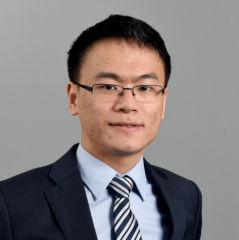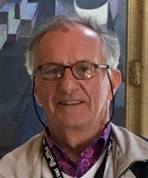
Two-player zero-sum differential games with one-sided information and state constraints, aka Football
Date: October 11, 2024; Time: 2:30 PM Location: PWEB 175
Abstract: Enabling embodied intelligence requires robots to plan according to unknown and potentially adversarial intents of interacting agents. This talk will focus on one scenario where theory and methods are underdeveloped. Specifically, we study zero-sum differential games with state constraints and one-sided information, where the informed player (Player 1) has a categorical payoff type unknown to the uninformed player (Player 2). The goal of Player 1 is to minimize his payoff without violating the constraints, while Player 2 either aims to violate the state constraints or, failing that, maximize the payoff. Examples of such games include man-to-man matchup in football and missile defense scenarios. Due to the zero-sum nature, Player 1 may need to delay information release or even manipulate Player 2’s belief to take full advantage of information asymmetry, while Player 2’s strategy will need to balance all possible consequences. Existing solvers such as CFR+ (e.g., for Poker) are applicable, but are not scalable to continuous action spaces as is often the case in robotics. We will discuss efficient solvers for these games by leveraging unique structural properties of their value functions.
Biographical Sketch: Dr. Yi Ren is an Associate Professor in the Department of Mechanical and Aerospace Engineering at Arizona State University. His research spans a range of topics at the intersection of machine learning and engineering, with recent focuses on differential game theory, GenAI model attribution, and representation learning for materials. He has published in both machine learning conferences, including ICLR and ICML, and engineering journals, such as IEEE Transactions on Robotics and Acta Materialia. Dr. Ren received his Ph.D. in Mechanical Engineering from the University of Michigan in 2012 and his Bachelor’s degree in Automotive Engineering from Tsinghua University in 2007. Outside of research, he enjoys playing soccer and spending time with his children.
